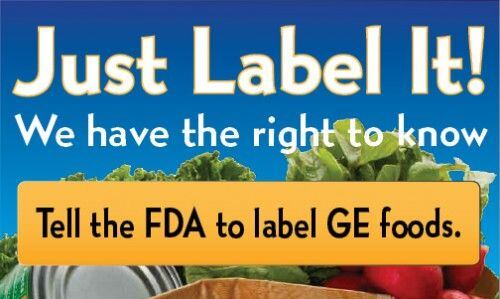With just six weeks until the ballot drops on whether genetically engineered (GE) foods should be labeled in Washington State, both sides of the campaign are ramping up efforts to gain support from backers as high campaign advertising season draws near.
GMO initiative I-522 would require GE foods—including corn, soy, or foods with genetically engineered ingredients like chips, cold cereals, soft drinks, and candy—be labeled when offered for sale to consumers. The proposal was added to the November ballot after state lawmakers missed the April 28 deadline to adopt the measure to the Washington legislature.

Official numbers neck and neck
Although the two sides are neck and neck in terms of official fundraising totals, it’s shaping up to be something of a David-and-Goliath battle. To date, the “Yes on 522” campaign has officially raised $3.34 million, with notable contributions coming from small-scale organics producers and consumers’ rights groups, including the Washington Association of Naturopathic Physicians, PCC Natural Markets, Marlene’s Market, Dr. Bronner’s Magic Soaps, Nature’s Path, and Ben & Jerry’s. The “No on 522” coalition has effectively matched that, with a total raised of $3.26 million, donated in large part by big grocery manufacturers and biotech firms.
Notably, nearly $1 million in donations to the No side have come from five pro-biotech interests via the Grocery Manufacturers Association (GMA), including major pesticide companies and mainstream food companies: Monsanto ($242,156.25 to date), DuPont Pioneer ($171,281.25), Bayer Cropscience ($29,531.25), and Dow Agrosciences LLC ($29,531.25). The GMA, a trade group representing big food companies such as Kellogg, General Mills and Nabisco, has come out as one of the most vocal (and deep-pocketed) opponents of I-522, kicking in a total of $2.2 million thus far.
Elizabeth Larter, communications director for Yes on I-522, told FoodNavigator-USA that much of the campaign’s support has come from within the state, as opposed to the No coalition.
“We have a couple thousand volunteers making calls every day around the state to tell more voters about the initiative,” she says. “We have well over 5,000 donors closing in on 6,000—over 80 percent of whom live in Washington State. The opposition is essentially being funded by five corporations not based in Washington that are using the GMA as a conduit.”
Dana Bieber, spokesperson for No on I-522 coalition, says the opposition also has the backing of the Washington Farm Bureau (which is made up of 40,000 farmers), businesses and chambers of commerce, as well as hundreds of doctors and scientists.
“I can’t speak to how the GMA makes contributions,” she says. “I know when it comes to our contributors, it’s folks who want to see our farmers be successful.”
The specter of Prop 37
As of June, about 66% of Washington State voters say they support I-522, with about 22% opposed, according to a survey of 1,200 likely voters by Washington, DC-based GBA Strategies. California’s Proposition 37 measure similarly enjoyed more than 60% support early in the campaign before it was narrowly defeated (by three percentage points) last November.
Steven Hoffman, managing director of natural foods marketing agency Compass LLC, which is raising funds and awareness for I-522, attributes Prop 37’s defeat both to the deep pockets of the opponents, who sunk $46 million into the opposition campaign, as well as the unexpectedly high early voter turnout in California. But he thinks the case will be different in Washington, where a greater overall percentage of agricultural producers are directly affected by GMOs.
“We weren’t able to get out to the voter to impact the early ballot as much as Election Day itself,” Hoffman, who also worked on the Prop 37 campaign, says. “As long as we can get in front of the voter—and I think we are better funded going in—and being in a much smaller state than California, we can have a greater communication impact with the electorate.”
Additionally, more Americans are aware of (and concerned about) GMOs. A recent New York Times poll found that 93% of Americans are in favor of labeling GE food.
Bieber says that until now, much of the opposition’s efforts have been focused on building support. “What we want to do in the next few weeks is get out and have a conversation with voters and share initiative with them,” she says.
And what of the latest polling numbers? “All that matters is how people vote on Election Day,” she says.
What it means for producers and consumers
The Yes campaign has primarily stressed the public’s right to know what’s in their food, while staying away from claims that GMOs are unsafe to eat, as that argument has come under attack by the scientific community.
This has been a focal point of the GMA’s argument opposing I-522. In a statement, it said:
“These labels could mislead consumers into believing that ingredients from genetically engineered plants are somehow different or unsafe or unhealthy–in clear contradiction of scientific fact.”

Not only that, but the labeling requirements exclude roughly two-thirds of foods and beverages in Washington, such as cow’s milk, hamburgers, beer and wine.
I-522 was modeled to be in line with common global GE labeling standards, in the hopes of minimizing the economic impact on producers. The I-522 website calls label updates a “routine part of business for the food industry," and likely will not result in increased costs for producers or higher prices for shoppers.
But the opposition argues the mandatory labeling measure would mire farmers and food producers in red tape, resulting in higher production costs and higher food prices for the end consumer.
“Washington farmers and food producers would be at a huge competitive disadvantage with I-522,” Bieber says. “They’d be the only ones facing this type of label system. So they’d have to create special labels on the front of food, or food would have to be remade with higher priced, specially handled ingredients.”
Moreoever, the law would also require a government-appointed agency to monitor the labels on countless products in every store across the state—and the burden would likely fall to taxpayers, Bieber adds.
Other states to follow?
The movement to label GMO foods seems to be picking up steam around the country. Since Prop 37 was voted down last November, 26 states have introduced labeling bills.
This summer, Connecticut and Maine approved GMO labeling legislation, though both include stipulations that require other states—including at least one border state—to pass their own GMO labeling laws before they go into effect.
At the federal level, Sens. Barbara Boxer (D-CA) and Peter DeFazio (D-OR) introduced the Genetically Engineered Food Right to Know Act in the spring, which would direct the FDA to write new labeling standards, but the chances of passage are unknown, as it hasn’t yet made it past committee (and currently has a 1% chance of getting passed, according to GovTrack).
In May, the U.S. Senate overwhelmingly voted against an amendment to the sweeping farm bill introduced by Sen. Bernie Sanders (D-VT), effectively squashing a measure that would have let states decide if they wanted to require such labeling.

With no federal action in sight, some fear that a confusing patchwork of state regulations for GMO labeling will take its place. Advocacy groups, like the American Herbal Products Association, are calling on manufacturers to voluntarily disclose the absence of GMO ingredients, which would help pave the way for a federal program and create an option for companies whose products are processed without GMOs, but that do not meet the additional requirements for full organic production.
Bieber says that organic labels (because of National Organic Program requirements) are sufficient to tell consumers whether or not products contain GMOs. Hoffman insists that explicit GMO labeling takes it a step further, and that the onus should ultimately fall on the companies that use GMOs.
“The companies trying to do good have to get non-GMO certified and it costs a lot of money. Meanwhile, these big companies contributing millions so they don’t have to label have a market advantage,” he says. “I think it could put more of a balance in the marketplace like in the EU where labeling is required.”
Back in Washington, September means the start of the air wars, and both sides are confident they can win in November.
“Our goal now is to really get the message out there to voters that I-522 is not what it seems,” Bieber says. “We're only in the beginning of September, so I suspect we’ll continue fundraising to make sure we have enough left in the tank come November.”
“We’re in a really exciting time,” Larter says. “We still have two months to go. Yes, it is the last push in the sense that ballot drops in five weeks, but we are talking to people all over the state.”
As was the case in California, the Yes side expects to be outspent yet again, just “hopefully not 6 to 1 this time,” Larter says, with a laugh.
